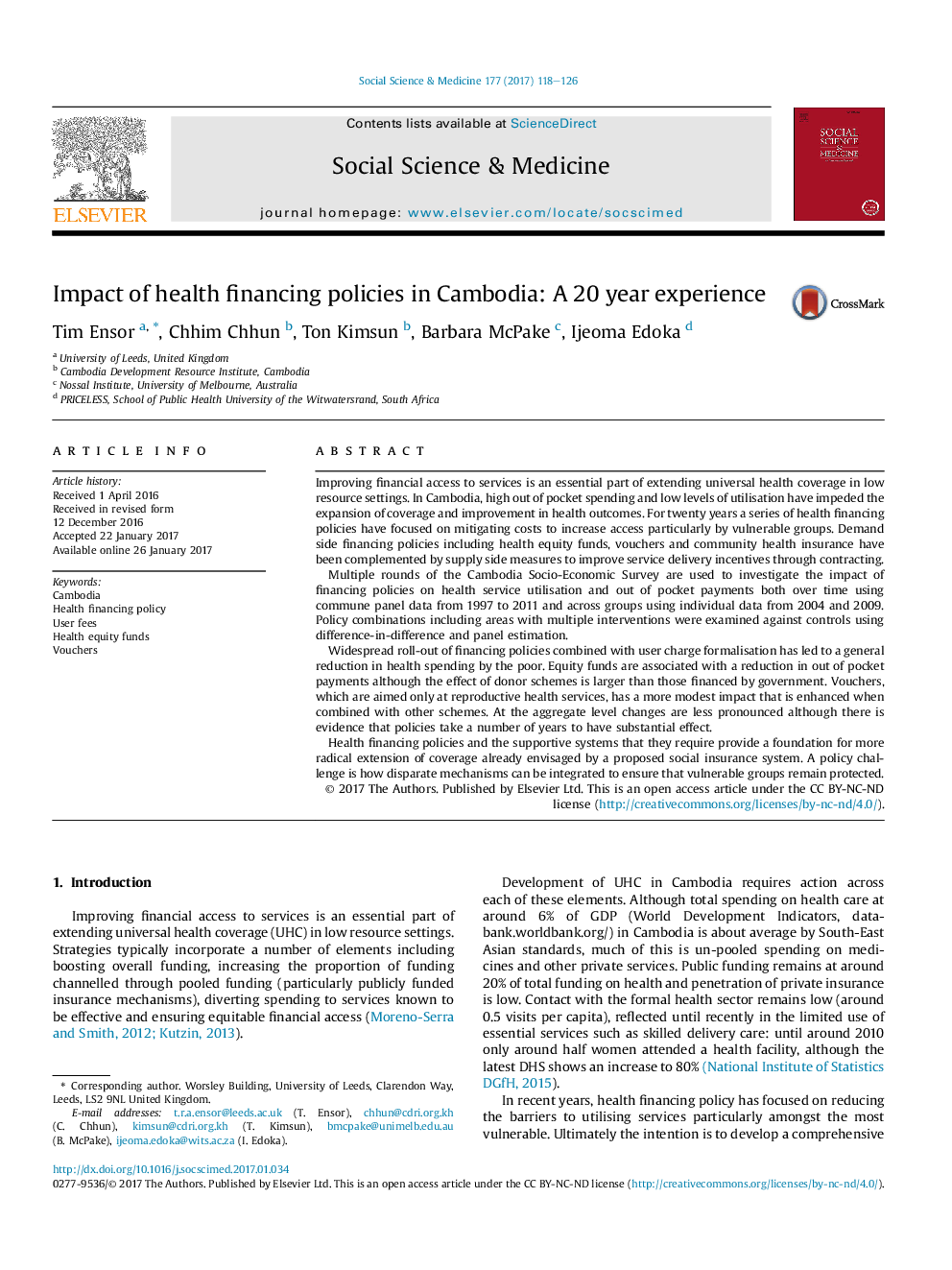| کد مقاله | کد نشریه | سال انتشار | مقاله انگلیسی | نسخه تمام متن |
|---|---|---|---|---|
| 5046718 | 1475992 | 2017 | 9 صفحه PDF | دانلود رایگان |
- Formalising fees led to an increase in mean health spending but a fall for the poor.
- It takes a number of years for health financing policies to reach full impact.
- Financing policies have led to a reduction in health spending by the poor.
- Interactions between policies affect their impact.
Improving financial access to services is an essential part of extending universal health coverage in low resource settings. In Cambodia, high out of pocket spending and low levels of utilisation have impeded the expansion of coverage and improvement in health outcomes. For twenty years a series of health financing policies have focused on mitigating costs to increase access particularly by vulnerable groups. Demand side financing policies including health equity funds, vouchers and community health insurance have been complemented by supply side measures to improve service delivery incentives through contracting.Multiple rounds of the Cambodia Socio-Economic Survey are used to investigate the impact of financing policies on health service utilisation and out of pocket payments both over time using commune panel data from 1997 to 2011 and across groups using individual data from 2004 and 2009. Policy combinations including areas with multiple interventions were examined against controls using difference-in-difference and panel estimation.Widespread roll-out of financing policies combined with user charge formalisation has led to a general reduction in health spending by the poor. Equity funds are associated with a reduction in out of pocket payments although the effect of donor schemes is larger than those financed by government. Vouchers, which are aimed only at reproductive health services, has a more modest impact that is enhanced when combined with other schemes. At the aggregate level changes are less pronounced although there is evidence that policies take a number of years to have substantial effect.Health financing policies and the supportive systems that they require provide a foundation for more radical extension of coverage already envisaged by a proposed social insurance system. A policy challenge is how disparate mechanisms can be integrated to ensure that vulnerable groups remain protected.
Journal: Social Science & Medicine - Volume 177, March 2017, Pages 118-126
